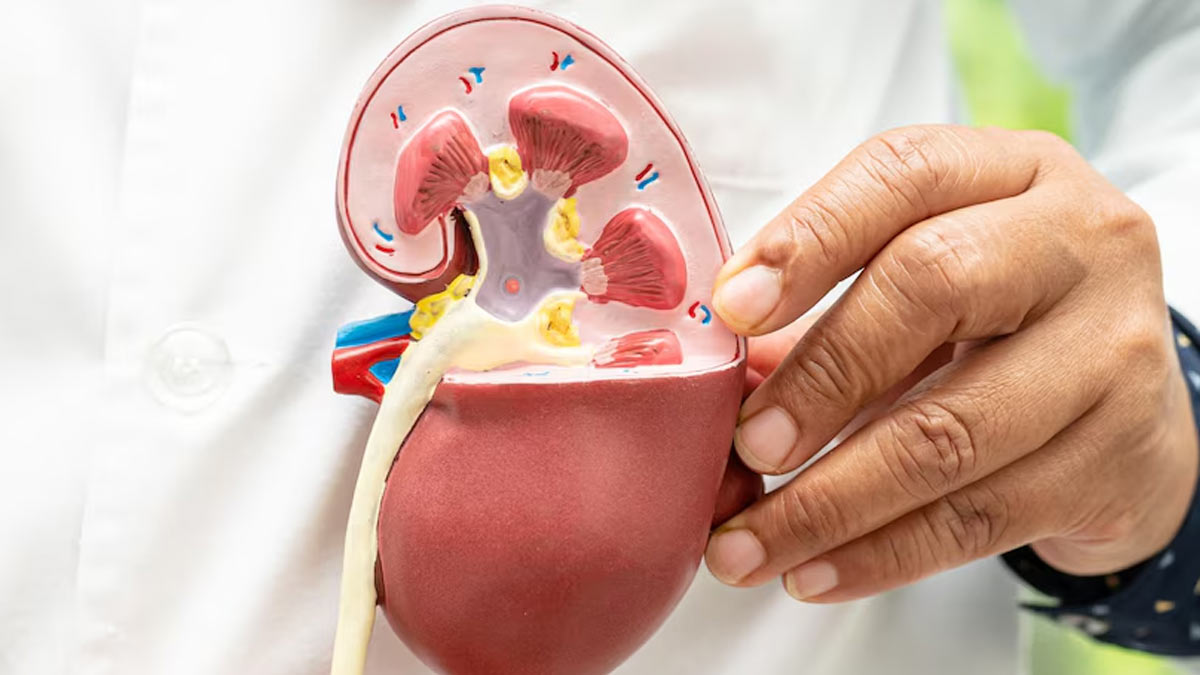
The health of our kidneys is super important to keep our overall health perfect, but we usually ignore kidney health until and unless it becomes a big issue. Our kidneys are responsible for several essential functions like filtering waste products from the blood, controlling blood pressure, balancing fluids, and releasing hormones. Several studies have been conducted and it has been found that our lifestyle and kidney health are interconnected.
Table of Content:-
To dive into the science behind lifestyle factors and kidney health, OnlyMyHealth interacted with Dr Prakash Chandra Shetty Urologist from Dr L H Hiranandani Hospital, Powai, Mumbai.
Dr Prakash Chandra said, “The more you will be physically active the more your kidney will function properly. Particularly giving importance to sleep duration and stress control can benefit in healthy kidney functionality.”
The Role of Kidneys

Before we understand how stress and sleep are interconnected in affecting our kidneys, it is essential to understand the main functions of kidneys for basic understanding. Dr Chandra explained, “It is located below the ribcage on the other side of the spine, and the filters about 200 liters of blood daily remind all the toxins and extra fluids in the urine. Balances electrolytes, maintains the right acid levels, and helps control blood pressure by managing blood volume and releasing a hormone called renin. Additionally, kidneys produce some hormones that stimulate RBC production and the active form of vitamin D.”
Also read: Salt: The Silent Culprit Behind Rising Kidney Problems Among Young Adults
Stress, Sleep, and Renal Function

Stress, whether it is for less time or long term, somehow affects your health including the health of your kidneys. Dr Chandra said that stress hormones like cortisol and adrenaline are released when a human body is under stress.
These hormones cause changes like a faster heart rate and high BP level. If stress lasts longer, it can lead to high BP issues and damage the blood vessels in the kidneys.
Research shows that a short sleep duration of less than 5-6 hours each night or having poor quality sleep like gin to sleep after fights and stress can affect your kidney health a lot. “Sleep disorders affect kidney health a lot which can lead to intermittent hypoxia( low oxygen levels) leading to stress and inflammation,” Dr Chandra added.

Also read: Are You Sleeping Too Much? Experts Explains How Much Sleep Is Too Much Sleep
Managing Stress and Improving Sleep for Better Kidney Health
Given the significant impact of stress and sleep on renal function, adopting lifestyle changes to manage stress and improve sleep quality can be beneficial for kidney health.
1. Stress Management
Stress management requires a change in lifestyle. Dr Chandra recommended that doing meditation yoga and breathing exercises should be your priority and eating healthy and avoiding junk intake can reduce stress and help in overall health.

2. Improving Sleep Quality
A proper sleep routine helps in regulating your body's internal clock and avid intake of caffeine and heavy meals before bedtime. “For regular sleep issues, it is best to seek medical advice from sleep specialists,” he said.
Keeping your kidneys healthy is vital for overall wellness and lifestyle factors such as stress and sleep are important factors for the wellness of your kidney functioning. If you are stressed or not getting enough time to sleep due to work pressure, it will disturb your kidney functionality slowly. But you can ease your kidney functioning by relaxing, being active, and eating healthy food. Also making sure to sleep on time and making it a daily routine will make a big difference.
Also watch this video
How we keep this article up to date:
We work with experts and keep a close eye on the latest in health and wellness. Whenever there is a new research or helpful information, we update our articles with accurate and useful advice.
Current Version